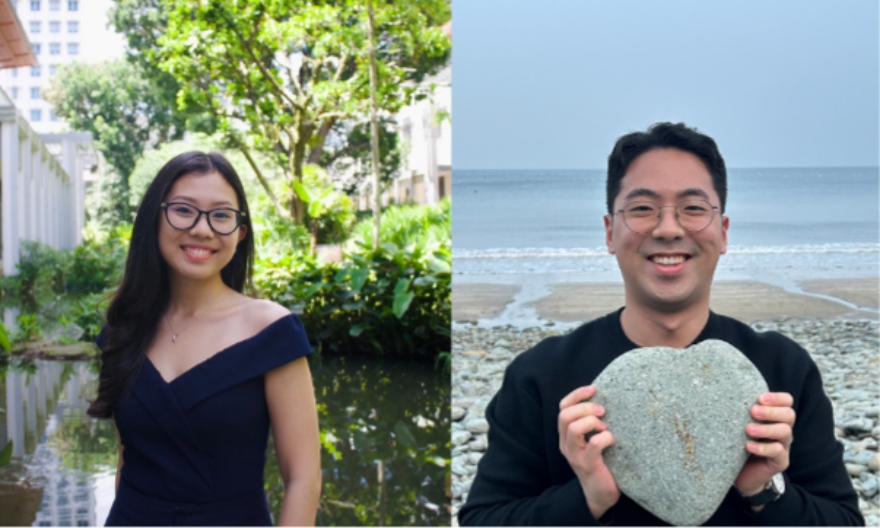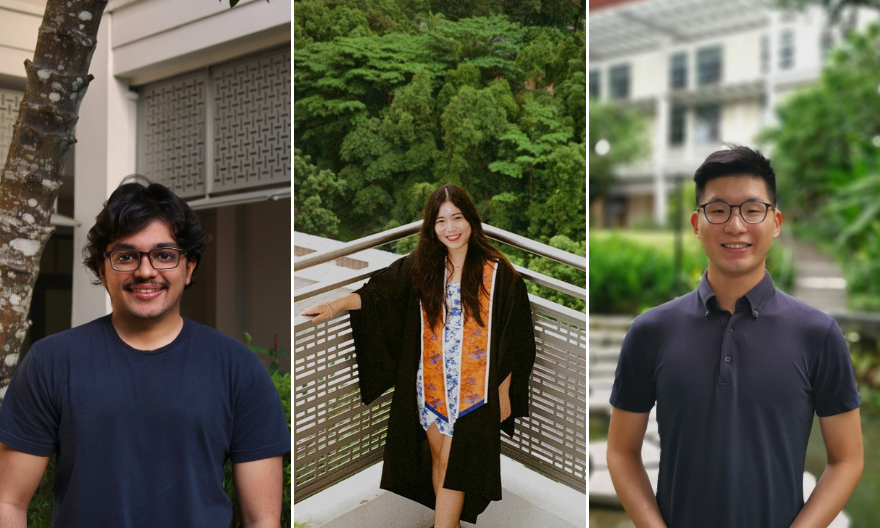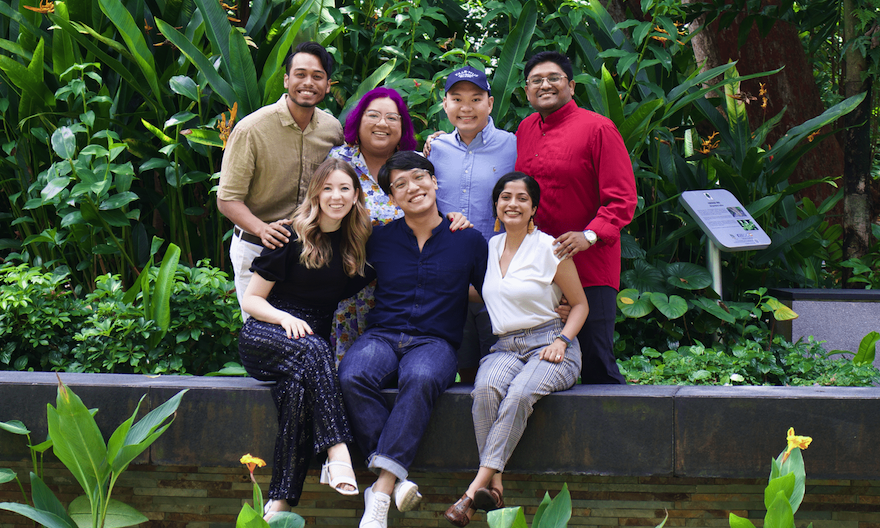Yale-NUS alumna makes strides in the Non-Fungible Token (NFT) space
Clara Peh (Class of 2019) shares her experience and goals founding NFT Asia and describes her formative experiences at Yale-NUS College
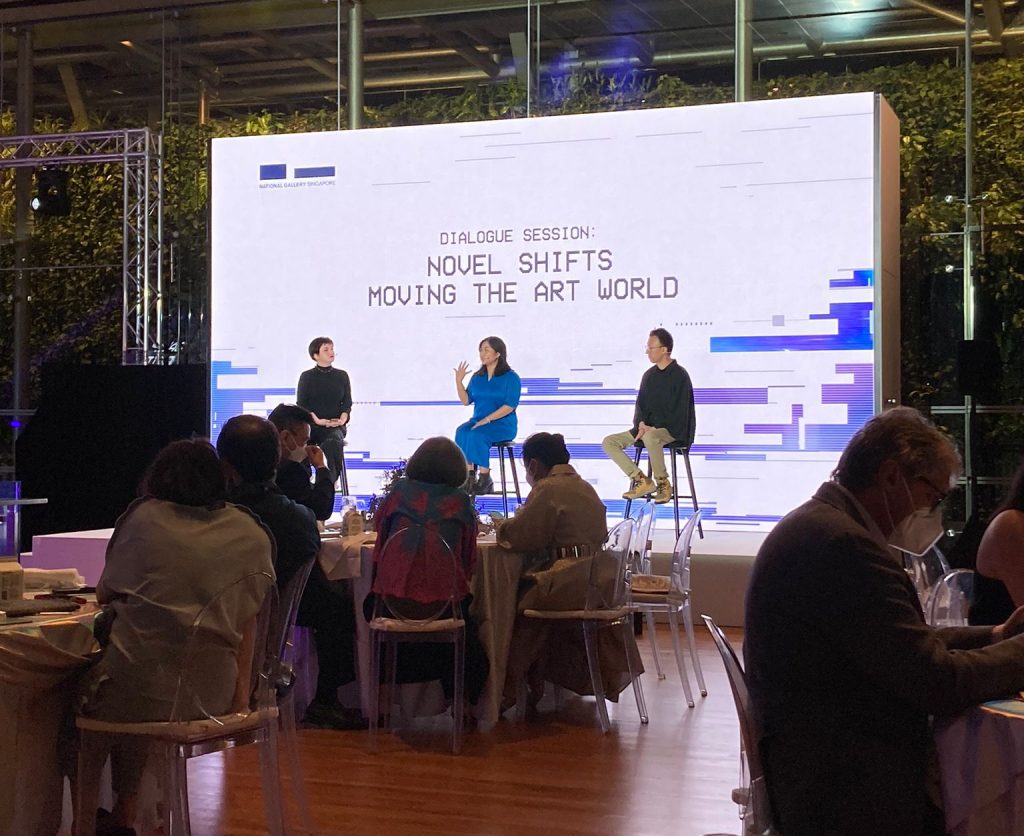 Clara Peh (centre) speaking at the National Gallery Singapore Annual Gala about NFTs. Image provided by Clara Peh.
Clara Peh (centre) speaking at the National Gallery Singapore Annual Gala about NFTs. Image provided by Clara Peh.
At Yale-NUS College, students are equipped with varied skillsets to pursue their passion in specialised fields beyond graduation. We catch up with our alumna Clara Peh (Class of 2019), a full-time art curator and the founder of NFT Asia – a non-profit artist collective that focuses on empowering Asian and Asia-based artists in the Non-Fungible Token (NFT) space – to find out how she hopes to engage the community on applying this new up-and-coming asset in the art scene.
You founded NFT Asia in 2021. Could you share the objectives for starting the company and what you look forward to achieving through it?
When I first started working with artists in the NFT space in February 2021, it became clear (very early on) that many artists based in Asia had the impression that the NFT ecosystem was very Western centric. It seemed as though the artists you hear about in the news are based in the United States or Europe, all the online talks and events were happening in an Eastern Time Zone. So there was this urgency for us to create a space that would bring Asian artists together, to build a strong community and amplify individual work through our collectivism.
The NFT space moves rapidly and it can be very overwhelming on its own, so we felt it was important to foster mutual learning and sharing of resources. As many artists working with NFTs come from different backgrounds outside of the contemporary art world, such as commercial photography or fashion design, we also wanted to build bridges between the NFT market and the art world to support artists and encourage them to work together and grow across spheres.
We began to run events, talks and workshops for our community on Discord and Twitter. We also created exhibitions and events, or connected artists to these opportunities, to showcase the works of the many talented artists in our community internationally. In March, we brought eleven artists’ works to ‘Art Dubai’, a premier art fair. In June, we will be profiling over a dozen artists in New York’s Superchief Gallery.
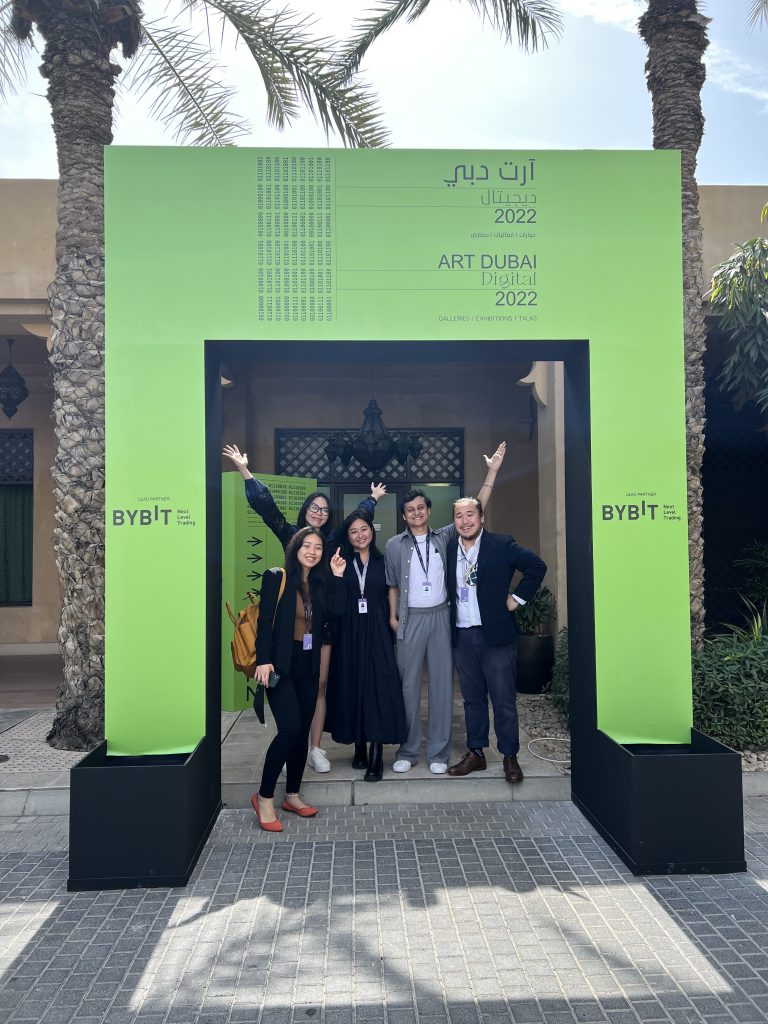 Clara with her fellow team members at NFT Asia when exhibiting at ‘Art Dubai’ in March 2022. Image provided by Clara Peh.
Clara with her fellow team members at NFT Asia when exhibiting at ‘Art Dubai’ in March 2022. Image provided by Clara Peh.
What is a day in your life like, working full-time as an art curator and running NFT Asia on the side?
I work at Appetite as the Art Lead and Curator. Appetite is a multidisciplinary space located on 72A Amoy Street, run by the Chef and Owner Ivan Brehm. As the Art Lead, I manage the direction of the art programme, which includes curating our on-site exhibitions as well as off-site projects, consultancy work, and research. In my day-to-day work, I do anything from researching on the next exhibition, meeting with artists and collectors, to learning about champagne from my colleagues on the beverage team.
With NFT Asia, we have constantly been in a state of learning, figuring things out, and trying to develop as fast as we can since we started last March. The NFT space moves very quickly, and we have to be on top of it. Most of my work in NFT Asia now is to determine our future direction, curate our exhibitions, and manage key projects. I work very closely with a strong team that is equally motivated in our mission, so even though it can be a lot of work, you know you’re never alone.
How did your education at Yale-NUS shape your interests in NFTs and art?
The interdisciplinary environment at Yale-NUS made it possible for me to major in Economics and minor in Art History, and to receive support and guidance for both sides of my interests. I was surrounded by many other students who similarly had interests across multiple fields at the same time, which fostered an encouraging environment to look for ways to grow them simultaneously and see them as together, rather than mutually exclusive. Given that NFTs are rooted in blockchain and cryptocurrency, it opens up a parallel art market, which is also what has driven a lot of conversations surrounding the technology thus far. My Economics background has definitely made a lot of these conversations on the art market easier for me to digest.
You recently gave a series of talks to students and alumni about NFTs. How was the experience like?
I really enjoyed being able to engage with alumni and current students on NFTs and art through the talk series which was held from March to April this year. The last session, in particular, took place at Vice President (Engagement) and Senior Lecturer of Social Sciences (Sociology and Political Science) Dr Trisha Craig’s apartment on campus, and we were able to go in-depth into discussions about the NFT ecosystem – the good, the bad, and everything in between. It felt as though I was back in college, in a classroom environment where we could engage with the topic critically and ask a lot of interesting questions. That was particularly enriching for me.
Thank you, Dr Craig and the Office of Alumni Affairs for making this happen!
Do you have any tips and advice for Yale-NUS students who are looking at entering the artistic or creative industry, particularly in the field of NFTs?
I would encourage anyone who is curious about NFTs – whether you are excited by its possibilities or a staunch critic – to take the time to read deeply about it, learn about the technology and ecosystem underlying it, and then decide how you feel about NFTs. While no one knows how the NFT market will develop, it is certain that it has opened up a parallel market for digital art and brought forth a paradigm shift in how we view digital objects. It is exciting to me to be able to participate in this cultural moment and help to shape its growth, and because it is still in its nascence, there are many ways in which you could contribute to the conversation.

